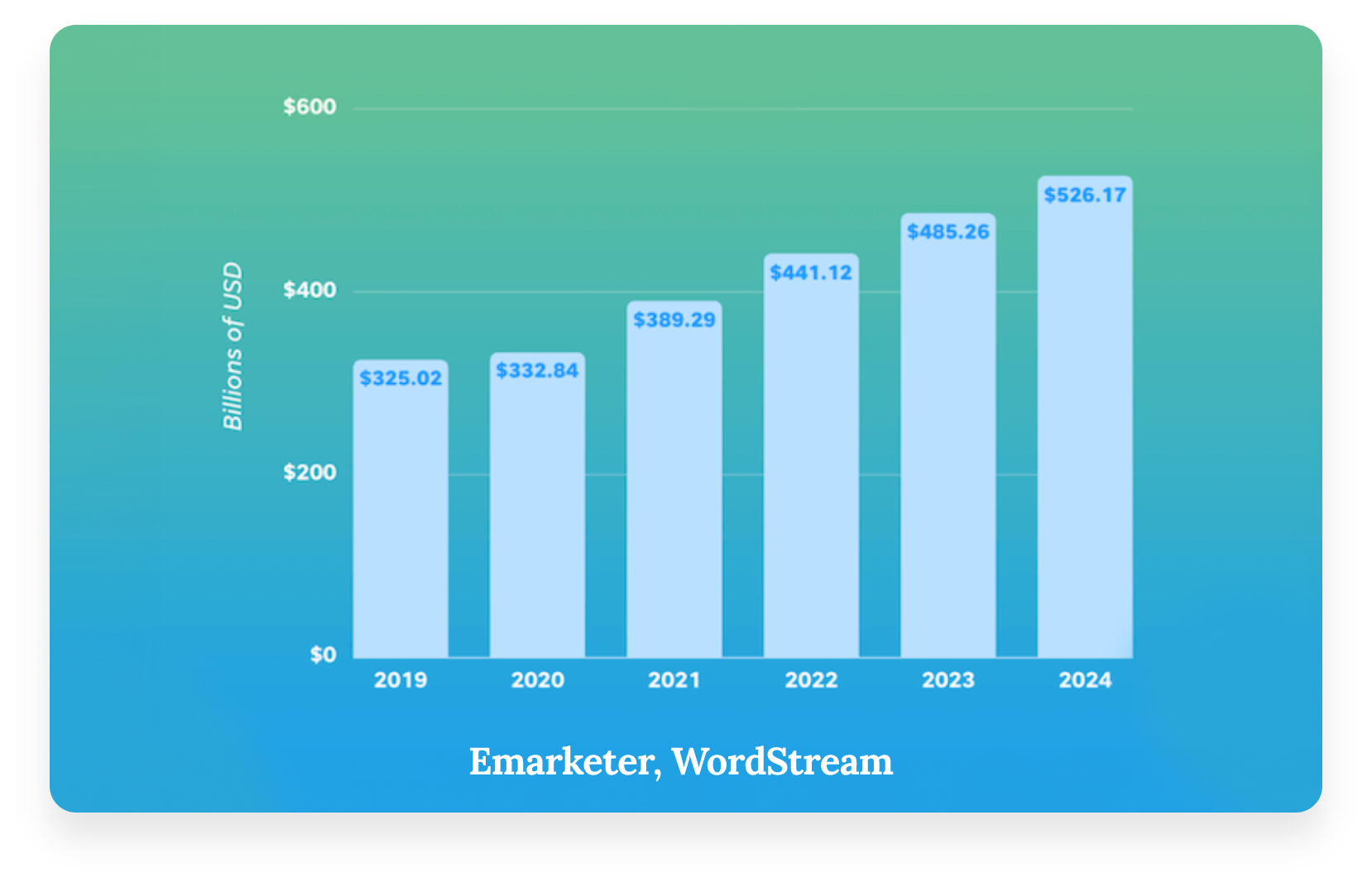
In the digital marketplace, the quest for sustainable lead generation is relentless. As businesses vie for visibility in the crowded online space, Search Engine Optimization (SEO) emerges as a linchpin in attracting potential customers. This guide delves into the essence of SEO, underscores its significance for businesses, and elucidates its role in generating leads. Furthermore, it contrasts the impact of organic searches with Pay-Per-Click (PPC) advertising and social media, offering actionable SEO tips to optimize lead generation efforts.
What is SEO?
SEO stands for Search Engine Optimization, a multifaceted strategy designed to increase a website's visibility in search engine results pages (SERPs). By optimizing technical aspects, enhancing content, and building a network of quality backlinks, businesses can improve their site's ranking for relevant keywords. This process is pivotal in attracting organic, or non-paid, traffic, setting the foundation for enhanced lead generation.
Why is SEO Important to Your Business?
The importance of SEO cannot be overstated in an era where online visibility equates to business viability. Here's why SEO should be an integral part of your marketing strategy:
-
Boosted Visibility:
SEO increases your website's visibility in SERPs, connecting your business with users actively seeking your products services.
-
Cost Efficiency and Long-Term Value:
While SEO does not incur the direct costs associated with pay-per-click (PPC) campaigns like SEM, it's important to recognize that it still requires a dedicated investment of time and resources. Unlike immediate results seen with PPC, SEO's impact grows over time, making it a more cost-effective approach for lead generation in the long run. This sustained effort can lead to SEO becoming a valuable asset for your company, providing lasting benefits and a competitive advantage.
-
Enhanced Credibility:
High rankings in SERPs are often associated with credibility and trustworthiness in the eyes of consumers.
-
Improved User Experience:
SEO involves optimizing the usability of your website, which can lead to higher engagement rates and, ultimately, more conversions.
How Does SEO Benefit Lead Generation?
The nexus between SEO and lead generation is forged through the targeted attraction of potential customers. By optimizing your website to rank for specific, relevant keywords, you can draw in a highly targeted audience likely to convert. Unlike the immediate but short-lived visibility provided by PPC, SEO offers a continuous flow of organic traffic. This traffic is not only cost-effective but also tends to have a higher conversion rate due to the perceived credibility of organic search results.
SEO Tips for Generating Leads
To harness the full potential of SEO for lead generation, consider implementing the following strategies:
Create a Blog Optimized by SEO and Optimize All Your Content
Developing a blog with SEO-optimized content is a powerful tactic for driving traffic and generating leads. Regularly updated blogs with valuable, relevant content can attract more visitors and establish your site as an authority. It's crucial to ensure all content on your site, from blog posts to product descriptions, is optimized for both search engines and users.
Improve the Speed of Your Website
Page speed is a critical factor in SEO and user experience. A fast-loading site can significantly reduce bounce rates and encourage users to explore more of your content, increasing the chances of conversion. Techniques such as image optimization, code minimization, and leveraging browser caching can improve site speed.
Know Your Keywords
Effective keyword research is the cornerstone of any successful SEO strategy. Identifying and targeting the right keywords can attract a more relevant audience to your site. Use tools like Google Keyword Planner, SEMRush, or Ahrefs to find keywords that are not only relevant to your business but also have a high search volume and low competition.
Start a Linking Strategy
A robust linking strategy, encompassing both internal links and backlinks from reputable sites, can enhance your SEO efforts. Internal linking helps search engines navigate and understand your site structure, while quality backlinks signal to search engines that your site is a credible source of information.
Organic Searches, PPC, and Social Media: A Comparative Overview
While SEO focuses on improving organic search visibility, PPC offers a paid alternative for immediate exposure. Although PPC can provide quick results, its costs and the temporary nature of its benefits contrast with the long-term, cost-effective leads generated through SEO. Social media, meanwhile, complements SEO by amplifying content reach, building brand awareness, and indirectly influencing search rankings through increased traffic and engagement.
By integrating SEO with a thoughtful approach to PPC and social media, businesses can create a holistic digital marketing strategy that not only boosts visibility but also enhances lead generation efforts. This multifaceted approach ensures that businesses can attract a steady stream of high-quality leads, fostering sustainable growth in the competitive online landscape.
Digital AD Spending Worldwide

Monthly SEO Spending by Company Size Worldwide
 Source: RS WebSols
Source: RS WebSols
SEO and Social Media Tools to Boost Lead Generation
Several tools can streamline your SEO and social media strategies, enhancing your lead generation efforts:
-
Google Analytics and Google Search Console:
These free tools from Google provide insights into your website's performance in organic searches, helping you understand where you can improve.
-
SEMRush or Ahrefs:
These comprehensive tools offer keyword research, site audits, competitor analysis, and backlink tracking to refine your SEO strategy.
-
Moz's Keyword Explorer:
This tool is great for finding keyword opportunities and understanding how difficult it might be to rank for them.
-
Hootsuite or Buffer:
For managing social media, these tools allow you to schedule posts, engage with your audience, and measure the performance of your content across different platforms.
Let’s recap
Embarking on an SEO lead generation journey requires a strategic blend of technical know-how, content excellence, and persistent optimization. As businesses strive to carve out a significant presence in the digital landscape, the importance of a well-orchestrated SEO strategy cannot be overstated. Here are the key steps and considerations for building a successful SEO lead generation strategy:
-
Comprehensive SEO Audit:
Begin with a thorough audit of your existing website to identify areas of improvement. This includes assessing site structure, speed, mobile-friendliness, content quality, and current search engine rankings.
-
Keyword Research and Optimization:
Utilize advanced tools to conduct in-depth keyword research. Focus on identifying high-value keywords that align with your target audience's search intent. Optimize your website's content and meta tags to rank for these keywords.
-
Content Creation and Optimization:
Develop a content strategy that addresses your audience's needs and questions. Create high-quality, engaging content that is optimized for both search engines and users. Regularly update your blog and site content to keep it fresh and relevant.
-
Enhance User Experience (UX):
SEO is not just about search engines; it's also about providing a seamless user experience. Optimize your website's design, navigation, and page speeds to ensure a positive user experience that can lead to higher engagement and conversion rates.
-
Build a Strong Linking Strategy:
Implement a strategic approach to both internal linking and acquiring high-quality backlinks. This not only aids in site navigation but also boosts your site's authority and ranking in search results.
-
Leverage Social Media and PPC Campaigns:
While focusing on organic SEO, don't overlook the power of social media and PPC campaigns to complement your efforts. Use social media to amplify your content's reach and engage with your audience. Consider PPC campaigns for immediate visibility, especially for competitive keywords where organic ranking may take time.
-
Monitor, Analyze, and Refine:
SEO is an ongoing process. Use analytics tools to monitor your website's performance, track key metrics such as traffic, bounce rate, and conversion rates, and understand user behavior. Regularly review and refine your strategies based on these insights to optimize your lead generation efforts.
-
Stay Updated with SEO Trends:
The digital marketing landscape is ever-evolving, with search algorithms constantly changing. Stay informed about the latest SEO trends and algorithm updates to ensure your strategies remain effective.
-
Educate Your Team:
SEO is a team effort. Ensure that your team understands the basics of SEO and the importance of integrating SEO practices into their work. Consider investing in training or workshops to keep your team skilled and motivated.
-
Be Patient and Persistent:
Remember, SEO success doesn't happen overnight. It requires patience, persistence, and continuous effort to see significant results. Stay committed to your strategy, and gradually, you will witness your website climbing up the search engine rankings, driving more organic traffic, and generating quality leads.
By following these steps, businesses can craft an effective SEO lead generation strategy that not only enhances their online visibility but also drives sustainable growth. The journey towards SEO excellence is iterative and requires constant learning and adaptation. However, with the right approach and mindset, the rewards in terms of increased leads, customer engagement, and brand authority are well worth the effort.
Marketing Director at Triario. Social communicator with emphasis on journalism, digital marketing, and advertising. A frustrated Egyptologist, journalist at heart but dedicated to marketing and sales. She writes, sells, budgets, markets—nothing is too big for her! Always a nerd.
Triario's Blog
Subscribe to our Blog and don’t miss anything!
Do you like our content?
We publish new content every week. Subscribe here and stay up to date with the most relevant news in digital marketing.








